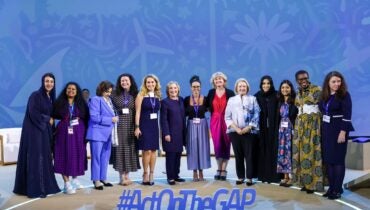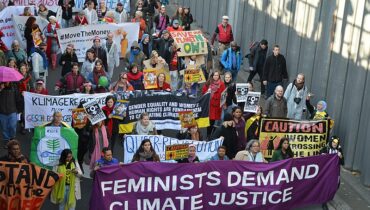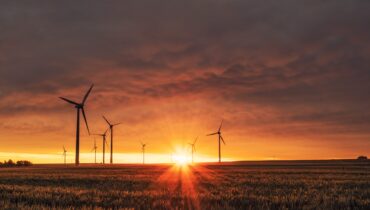The global effects of climate change are ever-present, with landslides, floods, and hurricanes wreaking havoc on millions of lives through forced displacement and loss of livelihoods. As world leaders and scientists focus on how to address climate change through policy and action, a critical piece of the debate is often left on the margins: the gendered dimensions of environmental degradation and global warming.
In many ways, women are uniquely and disproportionately burdened by climate change. For example, climate change is making it more challenging for rural populations to access water, food, and fuel – responsibilities that often fall on the shoulders of women in less economically developed communities. Women, particularly in rural environments, rely on natural resources to sustain their livelihoods. The majority of women in developing countries and 90% of women in many African countries work in the agricultural field. Women farmers, for example, are accountable for producing as much as 80% of food in developing countries. 1.2 billion people live in countries where water is scarce. Women bear the burden of providing water for their families and thus are most affected by droughts and flooding. Clearly, a gender-sensitive approach to combatting the effects of climate change is needed for not only the health of our planet but also the security of all peoples.
As part of the opening week of the 69th session of the United Nations General Assembly, high level officials and members of civil society came together to discuss the gender gaps in climate change policy. At the helm of this effort is Mary Robinson, the newly appointed UN Special Envoy for Climate Change, former President of Ireland, former UN High Commissioner for Human Rights and lifelong advocate of women’s empowerment. She spoke at two events focused on including women’s voices in the climate discussion: the “Leaders’ Forum on Women Leading the Way: Raising Ambition for Climate Action” and “Voices from the Climate Frontlines” during the UN Climate Summit. The discussions in these sessions emphasized the central role women play in agriculture and how they face the brunt of the adverse effects of climate change. And yet, their voices and perspectives are marginalized due to underrepresentation in echelons of power in most countries. Mary Robinson noted that it is important to recognize that women are not just victims of climate change but also have the extraordinary capacity to be agents for change. Women, at the local level, are the ones dealing directly with the problems of climate change like drought and flooding. These women have the knowledge both of the challenges climate change makes for their communities as well as solutions they have implemented to combat the negative effects. It is vital, as Mary Robinson stated, to include these voices and give these women access to power structures to share their knowledge and help combat climate change.“If we take away the barriers to women’s participation, we would solve the climate issue much, much more quickly.”
Leena Srivastava, Vice Chancellor at the Energy and Resource Institute University in India, noted that until women’s experiences and perspectives are mainstreamed policies around climate change, the challenges women faced by women will only continue to grow. Michele Bachelet, President of Chile and former head of UN Women, discussed how she is working to ensure that women’s voices are represented in the government and addressed by gender-sensitive policies.
Combating climate change will require long term high-level commitment, innovation and collective action but one thing is clear: women must be a part of the solution. We must see women as not only victims of climate change but also, and more importantly, agents of positive change. As Phumzile Mlambo-Ngcuka, Executive Director of UN Women, reminded the audience, “women are the first and last line of defense against climate change.” We cannot exclude half the world’s population and succeed at combatting climate change.


